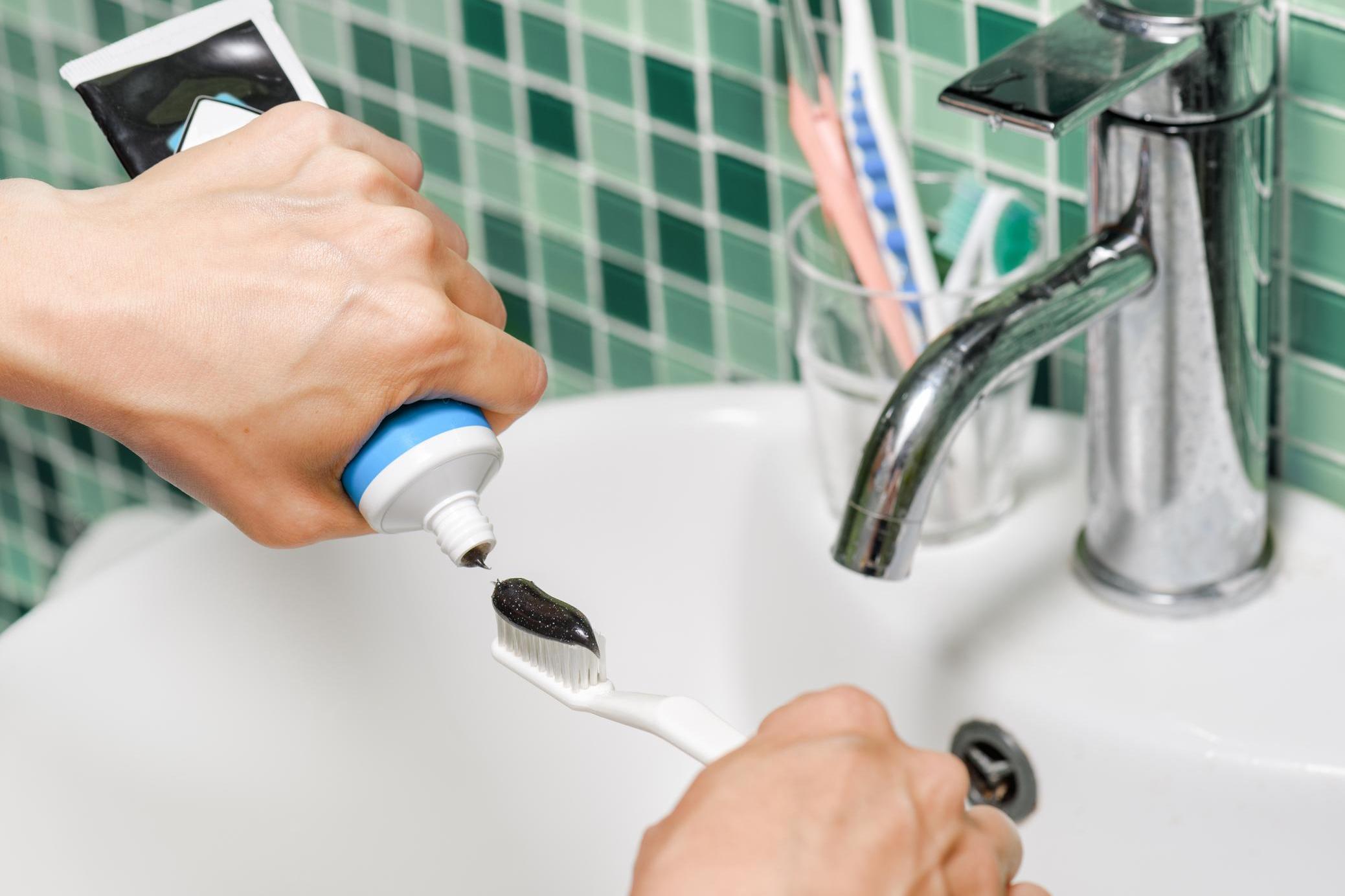The Independent's journalism is supported by our readers. When you purchase through links on our site, we may earn commission.
Charcoal-based toothpaste ‘will not whiten teeth and may cause decay’
‘They could potentially be causing lasting damage to a person’s teeth’

Charcoal-based toothpastes may be one of the trendiest dental products around, but new research suggests they may increase the risk of abrasions, contribute to tooth decay and actually fail to whiten teeth.
According to a new review published in the British Dental Journal, those tempted by such products should approach them with caution because many of them don’t contain fluoride, which is crucial for fighting tooth decay.
The review examined 50 charcoal toothpastes and found that just eight per cent of them actually contained fluoride. The review also found that even among the products that do contain the substance, their effectiveness might be rendered obsolete because charcoal can actually inactivate fluoride.
Among those tested, more than 50 per cent claimed to have therapeutic benefits while 30 per cent claimed to strengthen or fortify teeth. Other claims identified in the review included detoxification (46 per cent), antibacterial or antiseptic properties (44 per cent) and antifungal benefits (12% per cent). But experts behind the review say that none of these claims have been proven.
Nearly all of the toothpastes (96 per cent) also claimed to have teeth whitening properties, but the review states that charcoal-based pastes or powders contain an insufficient amount of free radical bleaching agent for them to have any whitening or stain-removing effect.
The review also identified a number of potential health risks with charcoal-based toothpastes due to the possible inclusion of carcinogenic polyaromatic hydrocarbon in charcoal, the group of chemicals that naturally occur in coal, crude oil and gasoline.
Dr Linda Greenwall, lead author of the study and member of the British Dental Bleaching Society, who conducted the research, urged consumers to check the ingredients of charcoal-based toothpastes before use to ensure they contain fluoride. Calcium and phosphate are also needed in order to strengthen enamel, she added.
“Not all charcoal toothpastes are the same and some could potentially be causing lasting damage to a person’s teeth,” Greenwall continued. “Toothpastes should contain fluoride to have additional health benefits for the teeth.
“The most worrying aspect about the marketing of charcoal pastes and powders appears to be a strong emphasis on the benefits which appeal to consumers, which have yet to be disproved. This ‘scientifically claimed until proved wrong’ approach is favoured over substantiated, evidence-based promotion.”
A spokesperson for the British Dental Bleaching Society added that if you’re considering whitening your teeth, you should visit your dentist first, adding: “Charcoal toothpastes do not whiten teeth. They may help to remove yellow plaque from the surfaces of your teeth, but they do not whiten teeth.”
Join our commenting forum
Join thought-provoking conversations, follow other Independent readers and see their replies
Comments
Bookmark popover
Removed from bookmarks